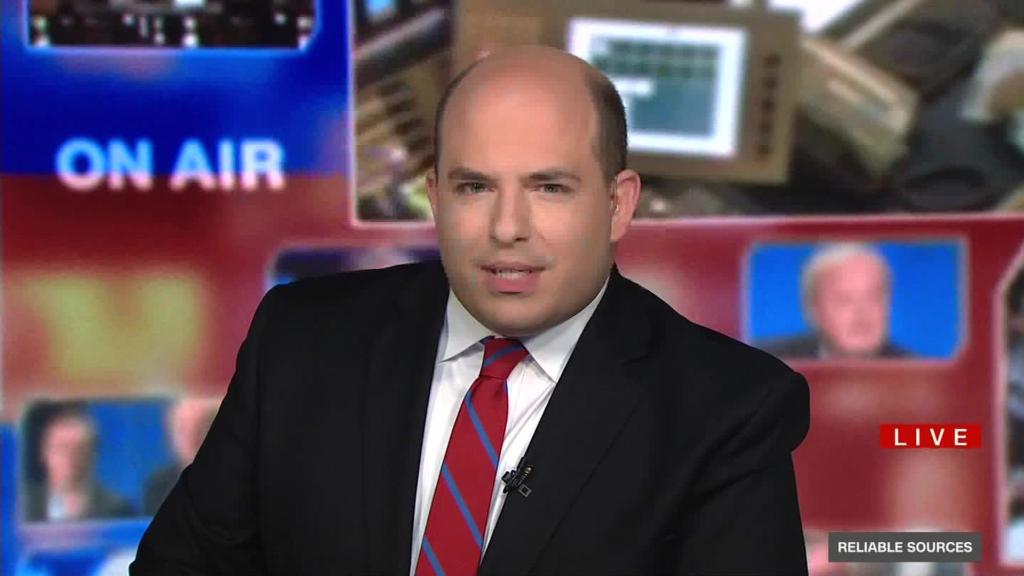
As journalists fan out to cover a hate group gathering on the one-year anniversary of the mayhem in Charlottesville, some are asking themselves: What's the responsible way to report on racists?
As I wrote in the "Reliable Sources" newsletter, I think there is widespread agreement that journalists shouldn't just hand over the mic to white supremacists for an unedited, unchallenging interview.
But how should newsrooms approach these stories? Al Tompkins, a veteran faculty member at The Poynter Institute, said his main notion "is that no problem, including racism or hate, gets smaller by ignoring it."
Similarly, I tend to err on the side of "expose the racists" instead of "deny them oxygen." But this is a really complicated issue. Some researchers and reporters say that the mere act of covering extremists can cause harm.
"Every time a white supremacist agrees to an interview, or stages a public event, they are trying to weaponize your media platform for recruitment. Those are the stakes of this coverage," The Guardian's Lois Beckett told me while boarding a flight to Charlottesville to cover the anti-racist rallies taking place there.
"Many people -- including journalists -- like to believe that white supremacists are stupid, that if you just expose an obviously racist idea to public scrutiny, everyone will recognize how foolish it is. That's not how it works," she said.
Yes, she said, covering hate groups is important, "but if you print a white supremacist talking point in your newspaper, it does not refute or fact-check itself."
That's why it is critical to include context and correct the falsehoods that spew forth when white supremacists and neo-Nazis espouse their views.
NPR came under criticism on Friday for its interview with hate group leader Jason Kessler, who organized last year's "Unite the Right" rally and this year's followup in Washington. He was interviewed by "Morning Edition" co-host Noel King.
While King challenged Kessler at times, critics found it insufficient. Slate's Jamelle Bouie said the interview was "absolute journalistic malpractice." Aaron Rupar of ThinkProgress called it a "disaster," pointing out that a Black Lives Matter activist was interviewed right afterward, "a setup implying that white supremacists and people advocating for racial justice are two sides of the same coin."
In response to some of the criticism, King tweeted that "Morning Edition" "thought long and hard before airing this."
And an NPR spokeswoman stood up for the segment: Interviewing people "does not mean NPR is endorsing one view over another," the organization said. "Our job is to present the facts and the voices that provide context on the day's events, not to protect our audience from views that might offend them."
That's a common point of view. But Karen Attiah, a global opinions editor for the Washington Post, offered a counterpoint in a column on Saturday.
"All too often, well-meaning people in the liberal media think as long as racists get a chance to be racist in public, everyone will automatically reject their views," she wrote. "Unfortunately, history shows us otherwise."
Beckett, too, raised an example from about a century ago.
"In the 1920s, a series of newspaper investigations helped the Ku Klux Klan gain hundreds of thousands of new members," she said, citing historian Felix Harcourt's account of how this happened.
"The stories were intended to expose the Klan. Instead they helped massively increase its membership and its political power," she said.
Similar debates sometimes erupt about coverage of ISIS and other terror groups.
Rukmini Callimachi of The New York Times, who has covered ISIS for years, connected the dots in a series of tweets on Saturday. She said she thought it was informative to hear Kessler "express his (insane) views" on NPR.
"I've dealt with the 'don't-give-them-a-platform' argument with ISIS for years," she tweeted. "When it comes to ISIS, it's beyond naive to think that if we stopped talking about them they'd go away. By not listening to them, we've instead made conceptual error after error in mounting a defense."
Tompkins, who has written ethics handbooks for newsrooms, told me there are two keys when it comes to news coverage: Tone and degree.
"The tone can be reflected in the adjectives we use. Avoid words like fear, fight, chaos. Be factual not subjective," he said. And degree is a measure of how much coverage a topic receives.
Tompkins said he urges news organizations to provide perspective while covering something like a hate group gathering -- showcasing "right doing" as well as "wrongdoing."
"Make sure you cover what communities are doing to spread acceptance as much as we cover divisiveness," he said. "It gives us hope that we can morph into something better. We have to provide some hope that humans can rise above past performance."
A version of this story first appeared in the "Reliable Sources" newsletter. Sign up for free here.


